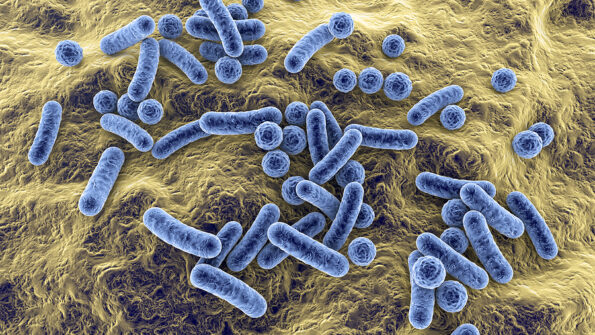We don’t know who hasn’t heard about it yet, but our bodies aren’t only ours to enjoy. There are trillions of other microorganisms sharing our bodies with us. These microorganisms – bacteria, fungi, and viruses – are known as the microbiome. The number of these microorganisms is so huge, that the number of bacterial cells alone, which make roughly 40 trillion, is larger than an average human’s 30 trillion cells. In other words, it’s more accurate to say we’re more bacteria than humans.
Are you freaking out yet? Do you feel angry at those shameless freeloaders for sharing your body? Before you start looking for ways to drive them away, how about we take a look at the bigger picture? Chances are, your life actually depends on them more than you can ever imagine. Here’s what you need to know about the microbiome and why it’s crucial for your gut health.
What is the Gut Microbiome?
Table of Contents
The microbiome includes a wide variety of microorganisms that co-exist peacefully inside our bodies. These thousands of different species play such a crucial role in maintaining and supporting the daily operations inside a human’s body, to the extent that scientists consider it a supporting organ. Perhaps the microbiome’s role is most apparent in the gut microbiome’s impacts. The gut microbiome, microbiota, or gut flora, refers to the group of the microbiome that exists in the cecum; a pocket located in the large intestine or colon. Each of the thousand gut microbiome species has its designated role, some of which result in various health benefits, while others may very well cause diseases and illnesses.

The First Encounter with the Microbiota
Our first encounter with the microbiota is when we were mere infants in our mothers’ wombs. Like every other feature we inherit from our parents, a person’s microbiota is uniquely imprinted by their DNA as well. This means that a mother’s microbiota plays an even bigger role in shaping her child’s microbiota. Here’s where some good news comes in: in-depth microbiome health research shows that we have the power to shape and modify our microbiota. In that sense, mothers can modify their diet to optimize their health, and, ultimately, their baby’s, throughout the pregnancy and even at birth.
The Role of Gut Microbiome
Although the health benefits of the gut microbiome are profound, keeping it balanced is the key to reaping these benefits. An imbalance or unhealthy microbiota can cause as many illnesses as a healthy one results in benefits. When balance is maintained though, the gut microbiome can be miraculously useful. A healthy microbiota directly translates to optimal digestion, smooth bowel movements, enhanced cognitive functions, and a sturdy immune system. Some research even links healthy microbiota to boosted metabolism, weight loss, improved cardiac function, and various other health benefits.
The mere idea of sharing our bodies with bacteria and viruses can be terrifying, much less sharing it with a thousand-species microbiome. Thankfully, turns out these microorganisms aren’t freeloading in our bodies after all. When you maintain healthy eating habits and pay good attention to your microbiota’s balance, you’ll be able to enjoy incredible health benefits provided by your uninvited, yet appreciated, roommates.
Image Source: BigStockPhoto.com (Licensed)
Related Categories: Health, Reviews








